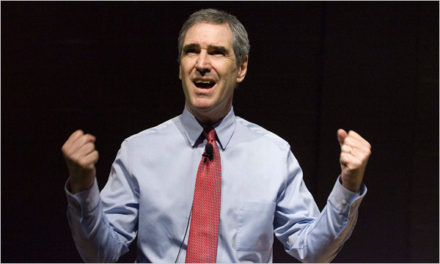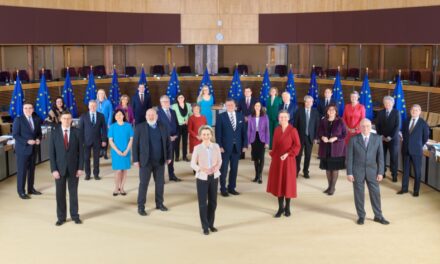If the US gets tough and shows strength in Ukraine, there is a good chance that China will move against Taiwan.
""The Pax Americana has ceased to exist for Russia."
Pax Americana was, all things considered, a good time. For the past three decades, most of the world has lived in peace. The USA guaranteed security, the free operation of the economy, the order of world markets, the exchange of cultural goods, and the globalization of communication. He supported Europe and, as a prerequisite, the reunification of the two Germanys. He acted as a peacemaker and peacekeeper in many places, including the Balkans. It tamed the return to market economies based on old-new private property into a soft landing in the former Soviet empire and China. Today, the citizens of most former communist states, as well as China, live better and enjoy more freedom than before.
As the sole ruler of a world that has become unipolar, the policy of the United States of America over the past three decades has been based on two false premises. One was the adherence to the Wilson doctrine, that is, that the USA is safe if it Americanizes the world. That is why he wants to force every country and people into an American-style, liberal democracy. The other serious mistake was caused by their belief that the return to or transition to a market economy based on private property and American-style liberal democracy presuppose each other. The examples of China, Russia, and a number of other countries prove that this "one-way street theory" has not been confirmed by reality.
Adding to the trouble, the US decision-makers gave an incorrect response to the serious provocation of September 11, 2001. The terrorist attacks on the New York World Trade Center and the Pentagon presented a new challenge. The impersonal, faceless forces of an already globalized world questioned the power of the USA. The USA's response was dictated by its old nerves. »Are they threatening our security? It's because we haven't Americanized them yet!" - they found "the udder between the cow's horns." So they accelerated the export of democracy. Two target countries were designated: Afghanistan and Iraq. They did not want to deter and/or punish them, but to terrorize them into a democracy. This was not achieved despite twenty years of military and financial efforts.
The next warning was the bursting of the US real estate bubble in 2008-2010. They responded to the global economic crisis again based on the old attitudes. Poorly. They focused on rescuing the criminally run, pyramid scheme-enabling, lax and uncontrolled financial systems, with the aim of allowing everything to continue as it was. That's how it goes.
In the new century, the USA therefore stuck to its old, twentieth-century recipes for success. Its elites became comfortable and arrogant. They did not pay attention to the fact that freedom gave a new impetus to the former captive nations,
and that, unlike him, they adapt to the new challenges of the new century with rapid steps.
In the 21st century, forcing the export of democracy may prove to be fatal for the USA in terms of soft politics. You should realize that in an increasingly global world, the imposition of the one-size-fits-all principle is doomed to failure. Everyone must learn from the others, everyone's experiences and interests must be mutually taken into account in order to be interested in the common future. The pressure of the LGBTQ lobby, the absolutization of racial issues, and the assumption that the topics that strain American domestic politics are universal are causing strong objections worldwide. After the terrorist attacks in 2001, the USA dressed in American flags. Everyone professed their patriotism in the most ostentatious way, and they expected their foreign friends to demonstrate their support. Today, throughout the USA, the rejection of the American anthem and the flag is the fashion, even the example to be followed, but it confuses the citizens of pro-American countries.
China, India and Russia, the Muslim world and South America are all looking for their place in the new, emerging world order. Both together and separately, they pose a challenge to the USA. The pathetic withdrawal of the Americans from Afghanistan at the end of the summer of 2021 intensified the positioning attempts of those interested in the rearrangement of the balance of power and spheres of interest.
YALTA 2.0
"The European Union warns against dividing Europe with a new Yalta." [5]
At the beginning of 2022, Russia is trying to stop and even reduce the expansion of NATO in Central and Eastern Europe, while China is increasingly taking possession of Hong Kong and threatening Taiwan. Russia's efforts to push NATO out of Europe represent a return to the Gorbachev vision of creating a European Union without the Americans. [6] At the same time, NATO, i.e. Europe without the USA, would remain without a protective umbrella and would be at the mercy of Russia's military power. All the more so because Europe still lulls itself into the illusion that it does not need an independent defense capability, which makes it vulnerable and at the same time trivializes it. A new agreement between the USA and Russia on Europe is on the brink, in which our continent will be the subject of the negotiations and not a participant. If the Russians and Americans agree on a Yalta 2.0 over the heads of the Europeans, it could lead to the demise of NATO. If they are unable to come to an agreement and the conflict continues to escalate, it could reactivate NATO, which has now fallen into a dead state. Which may be the most positive outcome of the current sharp confrontation.
There are several scenarios on the table:
1) President Biden's January 19, 2022 press conference was an attempt to get Russia to agree to another limited attack. Let's say that it creates a corridor providing a land connection with the Crimean peninsula, which was occupied in 2014. As he said: "if it is enough with a small intrusion, then we will decide what to do and what not to do. [...] If it is an unimportant, short, not so important attack, with frivolous military forces, we have to decide that it is a hacker attack, because then we can respond in the same way. There is a debate in NATO about who is willing to do what, in light of what will happen and who is capable of what. [7]
2) Mike Pompeo, Trump's former secretary of state, in The National Interest, in accordance with the foreign policy doctrine represented under Trump, came to the conclusion: "that the US and its allies must deploy the full spectrum of soft power [!] in order to limit and if possible, make the relationship between Russia and China impossible over time". He then continues: "Russia is basically a European state and therefore its future is not necessarily shared with China. The U.S. must forge a new relationship with Moscow, one based on honesty and reciprocity, and an unrelenting commitment to exposing Russian malice and corruption.” [8] Does this mean that the Americans and Russians must join forces against China, but only after Putin's ill-will and corruption have been jointly defeated?!
In essence, both are invitations to a waltz. If Putin is satisfied with a small bite of Ukraine, the response will be limited, the US president promises. In this case, the USA and Europe gain time. The big question is whether they can live with it.
As well as when the next ultimatum will come. Meanwhile, the American and Western European press pushed the war psychosis to its peak. He envisions a Russian attack within days. Therefore, Americans and Britons, including diplomats, staying in Ukraine will be "evacuated" from January 23. All this serves the marketability of Biden's leniency. This way, according to their hopes, it will not be that the USA does not want and/or cannot show strength against the demands of the Russians, but rather that President Biden defended the peace. A war has been avoided that nobody really cares about except the peoples living here in Central Eastern Europe, and for which they are not even willing to make any effort.
3) "Russia can expect a quick and severe response from both the United States and its European allies if a single additional member of the Russian military enters Ukraine," US Secretary of State Antony Blinken said in an interview with CNN on Sunday [9] " in the capacity of a bad policeman. His task was to adjust or nullify the above-mentioned presidential speech.
In other words: Washington blows both cold and heat at the same time.
Republicans want to settle with the Russians so they can focus on China. The Democrats present themselves as anti-Russian, while they are interested in a deal at any cost.
For decades, Europe has rocked itself in the belief that it can become an economically and financially strong Switzerland while remaining politically independent and militarily neutral. Time to wake up! If the Americans declare Ukraine a free prey, who will stop the Russians, and especially where? If the Russians' next move is northward, toward the Baltic states and Poland, Germany will be directly affected. Is Berlin waiting for the return of the Russians with a raised index finger, preaching about morality and peace?"
The full article HERE !
Featured image: MTI/Lajos Soós












